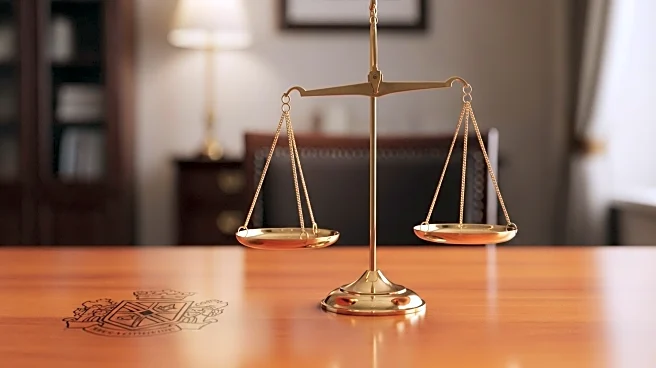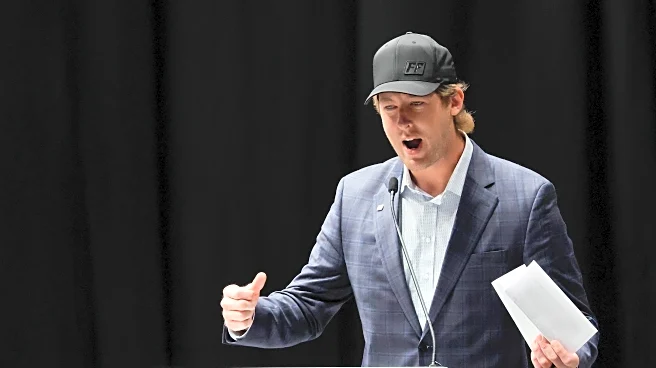What is the story about?
What's Happening?
Charlie Javice, convicted of defrauding JPMorgan Chase out of $175 million, has written a letter to a federal judge pleading for leniency ahead of her sentencing. Javice, the founder of the student aid startup Frank, was found guilty of fabricating customer data to mislead JPMorgan into acquiring her company. In her letter, she invoked her Holocaust-surviving grandmother and her immigrant grandparents' resilience, expressing regret for her actions and accepting full responsibility. Javice highlighted her volunteer work and personal sacrifices, including delaying motherhood, as reasons for the court to consider a no-prison sentence.
Why It's Important?
Javice's case highlights significant issues in corporate ethics and the consequences of fraudulent activities in the business world. Her plea for leniency, based on personal and familial circumstances, raises questions about the balance between justice and compassion in sentencing. The outcome of her case could set a precedent for how similar white-collar crimes are treated in the judicial system. Additionally, the case underscores the importance of due diligence in corporate acquisitions, as JPMorgan was misled by falsified data.
What's Next?
Javice's sentencing is scheduled for later this month, and the court's decision will be closely watched by legal experts and the business community. The case may prompt discussions on the adequacy of current regulations and oversight in preventing corporate fraud. JPMorgan's response to the sentencing and any potential restitution or legal actions could also influence future corporate governance practices.
Beyond the Headlines
The invocation of Javice's family history and personal struggles adds a human dimension to the case, potentially influencing public perception and the broader discourse on accountability and redemption. The narrative of resilience and responsibility, as taught by her grandmother, contrasts with the actions that led to her conviction, offering a complex view of personal and professional ethics.
















